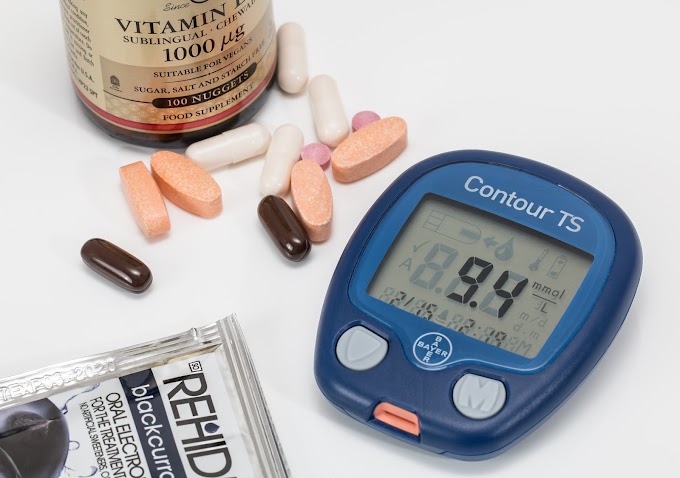Foods That Help Relieve Psoriasis
Did you know that some foods can relieve symptoms of psoriasis? On the other hand, there are foods that can make your psoriasis symptoms worse. Read this article to find out exactly what foods to eat and avoid.
Psoriasis is a skin disease that affects about 2% of the population. The main symptom is skin that is irritated and reddened by peeling off the whitish skin. In this article, let's look at how a healthy diet can help relieve psoriasis.
Changing your diet doesn't make your psoriasis completely clear. However, it can help reduce symptoms.
Read on to find out what foods are recommended that can help minimize your psoriasis symptoms and what foods can make your problem worse.
How to relieve psoriasis and how it relates to food?
Changing your eating habits can help control your psoriasis symptoms.
In May 2017, a study published in the journal Dermatologic Therapy analyzed the diets of more than 1,200 members of the American Psoriasis Foundation. As a result, some foods make psoriasis worse, while others have been shown to reduce symptoms.
In general, most of the people in the study followed the following diet:
At the same time, many participants noted that they followed a specific diet to control psoriasis with a successful outcome. Overall, some of the most mentioned diets are the vegan diet, the Paleo diet, the Mediterranean diet, the vegetarian diet, gluten-free, low carb and high protein diets.
Recommended foods to help relieve psoriasis
Here is a list of foods based on dietary recommendations published in the journal JAMA Dermatology.1. Fruits and vegetables
Antioxidants and beta-carotene can help control psoriasis symptoms.
The following foods can help control psoriasis by providing your diet with essential nutrients such as vitamin A, antioxidants, zinc, selenium, and magnesium.
Fruits and vegetables to include in your daily diet include:
Carrot
Paprika
Pumpkin
Spinach
Broccoli
Avocado
Apricot mango
Raspberry
Blueberries
Blackberry
2. Omega 3
Next, omega 3 fatty acids are well known for their anti-inflammatory properties. All in all, it's a great food to include in everyone's diet.
Some foods rich in omega-3 fatty acids include:
Oily fish: salmon, sardines, herring, mackerel
Seafood
Nuts and seeds
Soyodbean and
3. Whole grain food
Fiber is needed for the proper functioning of the intestine.
It is very important to consume fiber and probiotics. After all, in order for the body to absorb nutrients properly, it must maintain good gut health.
Therefore, it is recommended to eat whole grain foods and to eat less food made from plain flour. Whole grain foods are high in fiber and are also an excellent source of minerals.
Add rice, wheat, grains, oats, bread, or other similar whole grains to your daily diet. You can also include kefir and yogurt in your diet to increase your intake of probiotics.
4. Vitamin D
According to some studies, including vitamin D can help control inflammatory conditions such as psoriasis. Consider including foods such as fatty fish, eggs, and sunflower seeds.
Before you start, it's important to note that you don't have to completely avoid avoiding most of the foods we're introducing now. For some foods, you only need to reduce your intake or conscientiously consume the foods that are introduced from now on.
Let's take a closer look one by one.
1. Alcohol
Minimizing alcohol consumption can help control psoriasis. There are no conclusive data to support the claim that people with psoriasis should avoid alcohol completely.
However, some studies suggest that psoriasis treatment is not very effective when consumed with alcohol.
2. Processed food and refined sugar
Psoriasis is an inflammatory disease. Therefore, to help control psoriasis, it is advisable to exclude processed foods with low nutritional value such as margarine, instant soups, soft drinks, and sauces from your diet.
3. Red meat
Experts generally advise people with psoriasis to eat less red meat in their diet and avoid fatty meats
This is because these meats can increase the number of cytokines, making psoriasis symptoms worse.
4. Coffee and milk
Like red meat, coffee and milk are the cellular proteins responsible for controlling inflammation.
Increase the number of Therefore, it's best not to drink coffee and milk as often.
5. Gluten-Free Diet
A gluten-free diet can help control psoriasis symptoms.
According to some studies, the majority of the population with psoriasis may be allergic to gluten. While some studies have shown a correlation between psoriasis and gluten, the scientific and medical worlds disagree.
While some experts advise removing gluten from your diet as a precaution,
There are studies supporting the opinion that if the existence of is not confirmed, adverse effects may occur.
Talk to your doctor to see if a gluten-free diet will help you.
6. Fat
Diet can make your symptoms of psoriasis worse. Therefore, it is good to eat less fat.
Conclusion
Eating can't cure psoriasis. However, it can help relieve symptoms. Talk to your doctor or dietitian about the best dietary changes that can help you control your psoriasis.
Finally, the dietary changes introduced so far are guidelines for a balanced and varied diet. You can also strengthen a balanced diet with physical exercise and healthy habits to control your psoriasis symptoms as well as improve your overall health and quality of life.
Enable GingerCannot connect to Ginger Check your internet connection
or reload the browserDisable in this text fieldEditEdit in GingerEdit in Ginger







0 Comments